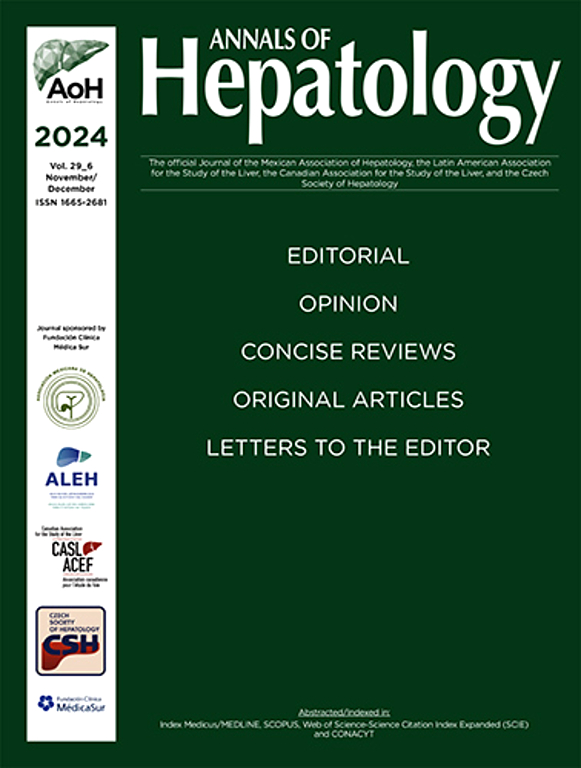在巴西,甲型肝炎疫苗接种作为一项疫情控制战略对重点成人群体的影响
IF 4.4
3区 医学
Q2 GASTROENTEROLOGY & HEPATOLOGY
引用次数: 0
摘要
简介和目的病毒性甲型肝炎(HAV)是一种主要通过粪-口途径传播的感染。2016年,世界卫生组织观察到,在低流行国家,与口肛性行为有关的甲型肝炎病例有所增加。评估重点人群成人接种甲型肝炎疫苗作为控制甲型肝炎暴发策略的结果。材料和方法对卫生部关于巴西两个首都流行病暴发的国家技术报告和技术说明进行了文件分析。结果巴西本文章由计算机程序翻译,如有差异,请以英文原文为准。
IMPACT OF HEPATITIS A VACCINATION IN PRIORITY ADULT GROUPS AS AN OUTBREAK CONTAINMENT STRATEGY IN BRAZIL
Introduction and Objectives
Viral hepatitis A (HAV) is an infection primarily transmitted via the fecal-oral route. In 2016, the World Health Organization observed an increase in HAV cases in low-endemicity countries, associated with oral-anal sexual practices.
To evaluate the outcome of hepatitis A vaccination in adults from priority groups as a strategy for containing the hepatitis A outbreak.
Materials and Methods
A document analysis of state technical reports and technical notes from the Ministry of Health addressing epidemiological outbreaks in two Brazilian capitals was conducted.
Results
In Brazil, there were HAV outbreaks in São Paulo (2017) and Curitiba (2024), with similar characteristics and a predominance of cases in adult males via sexual transmission. In São Paulo, an increase in cases was noted, with 786 reported cases, 80% of which were among individuals aged 18 to 39. In 2018, a reactive vaccination campaign against HAV was initiated, leading to a reduction in cases in subsequent years. In Curitiba, 315 cases were confirmed between 2023 and 2024, with 71.1% of cases in adults aged 20-39. The same strategy was initiated in June 2024, resulting in an 80% reduction in the absolute number of cases by November 2024.
Conclusions
In response to the identified outbreaks, the Ministry of Health developed strategies for adults in priority groups and implemented HAV vaccination for these groups, achieving effective outbreak control. In May 2025, given the positive outcomes, the HAV vaccine was incorporated for all users of HIV Pre-Exposure Prophylaxis (PrEP) as a preventive measure.
求助全文
通过发布文献求助,成功后即可免费获取论文全文。
去求助
来源期刊

Annals of hepatology
医学-胃肠肝病学
CiteScore
7.90
自引率
2.60%
发文量
183
审稿时长
4-8 weeks
期刊介绍:
Annals of Hepatology publishes original research on the biology and diseases of the liver in both humans and experimental models. Contributions may be submitted as regular articles. The journal also publishes concise reviews of both basic and clinical topics.
 求助内容:
求助内容: 应助结果提醒方式:
应助结果提醒方式:


